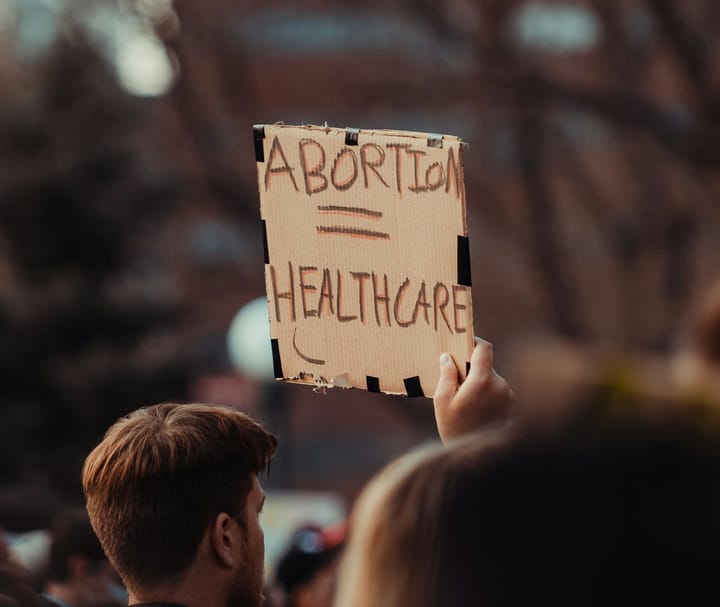A Frank Q&A About Reproductive Rights In Texas
Texas Signal recently spoke with Tara Mancini, the Director of Public Policy for Power to Decide, about how the organization is navigating 2025 and beyond.

The landscape for abortion access has been transformed over the last few years, to say the least. In December, Texas Attorney General Ken Paxton filed a lawsuit against a New York doctor for prescribing abortion pills to a woman in Texas, potentially setting up a legal showdown between anti-abortion states and those with shield laws that protect abortion providers. Furthermore, the Texas legislature is mulling several bills that could restrict and criminalize the mailing of abortion pills in the state. Texas Signal recently spoke with Tara Mancini, the Director of Public Policy for Power to Decide, about how the organization is navigating this new terrain.
Power to Decide was founded in 1996 as part of a presidential call to reduce teen pregnancy in the country. Since then, the group has evolved into one of the largest and most trusted resources for reproductive and contraceptive health. Power to Decide provides two major online tools for prospective users. AbortionFinder is a concise database with accurate and secure information about where abortion care can be accessed around the country (and it’s available in both Spanish and English). And Bedsider is “an online birth control support network” that presents a comprehensive overview of contraception options.
This interview has been edited for clarity and length.
What does Power to Decide do, and can you talk about some of your work in Texas?
We work to improve reproductive well-being for all, so we do that by being a trustworthy resource for accurate sexual and reproductive health information. We also work to increase access to the full range of contraceptive methods. And we track legislation related to contraception and abortion across all fifty states to keep [our] resources and information up to date, and to help supporters on the ground.
Texas is in the midst of our legislative session. We are seeing bills filed to reclassify abortion pills or ban information about abortion on the internet. Could you talk a little about those or potential legal challenges.
In terms of the bill to reclassify mifepristone and misoprostol, two medications used for medication abortion, we already have an example of this in Louisiana. It was the first state to reclassify [those] as controlled substances, and that went into effect in October of last year. Experts warned that his could delay access to lifesaving medications for miscarriage management and for postpartum hemorrhaging. Last year The Louisiana Illuminator talked with providers after the law going into effect and how some patients were struggling to access prescriptions that were being prescribed by providers. The important thing to know is that these laws are not based on medical science, and they only serve to instill fear in patients and providers. I would imagine there would be legal challenges as there is one in Louisiana. But I do want to stress that I am not a lawyer, but I imagine there are organizations that litigate on this stuff [for Texas].
And for the bill that would restrict internet providers from showing websites related to abortion?
Again [I’m] not a lawyer, but these laws would generally violate free speech. The key here is the real goal is to scare people into silence and to fear seeking out accurate information.
Louisiana has also taken things further than a civil lawsuit. There was a grand jury that indicted a New York doctor who prescribed abortion pills, and a patient’s mother was arrested.
Part of the effect that criminalizing these pills might send is that there is a safety issue [with drugs like mifepristone], but I want to emphasize that medication abortion has been proven safe and effective for decades. It has more than a 25-year track record in this country and is an essential part of women’s healthcare. Telehealth has been a lifeline for those folks who have been unable to leave [a state with an abortion ban] and shield laws protect the abortion providers who treat these patients. Regardless, people are going to look for information. People doing that should look to protect their data. There are states that are working to increase data privacy for consumers. That is a reason why AbortionFinder does not collect, store, or share any information that may identify its users. But again, these lawsuits are trying to create an environment where people are scared.
Tucked into Project 2025 was restrictions on forms of contraception, like Ella which they called an abortifacient (it is not). Are there things you want to dispel or clarify about contraception?
The attack on contraception is actually broader than Ella. Anti-abortion groups and policymakers that support them are also anti-contraception, but they are usually not loud about it because contraception is incredibly popular. Those that are anti-contraception are working to redefine when pregnancy begins. I think the other important thing to know is that it’s not going to stop at one form of contraception. There are lots of ways that lawmakers have come after access to contraception, one way is by going after who provides it. Lots of states have implemented legislation to stop Planned Parenthood from providing contraception.
Or by going after Title X funding, which happened here.
Exactly, or then there’s Medicaid. Not being able to use their coverage for a provider of their choice. We have done some work with an organization called the Contraceptive Access Initiative on mis- and dis-information around contraception.
How can somebody in a state like Texas promote access to reproductive care?
First, sharing accurate information with folks and you can do that with AbortionFinder. And of course, abortion funds and other groups have been working for years to help Texans navigate the complicated landscape of abortion laws before it was banned. Many of those groups, including practical support organizations, they are still doing the work. That is another resource we connect folks with on AbortionFinder.
Thank you for that information. Is there anything else you would like to add?
In this whole conversation about abortion and birth control access and restrictions, [I think it’s important] to center and remember who is most harmed by these barriers. That doesn’t fall equally on all people. Not everyone has health insurance or extra funds for travel or paid time off work or even a job that allows them time off to travel. Abortion bans and restrictions only further put healthcare out of reach, in addition to the stigma these laws create. I just think keeping it centered on who is most harmed by this is most important.



Comments ()